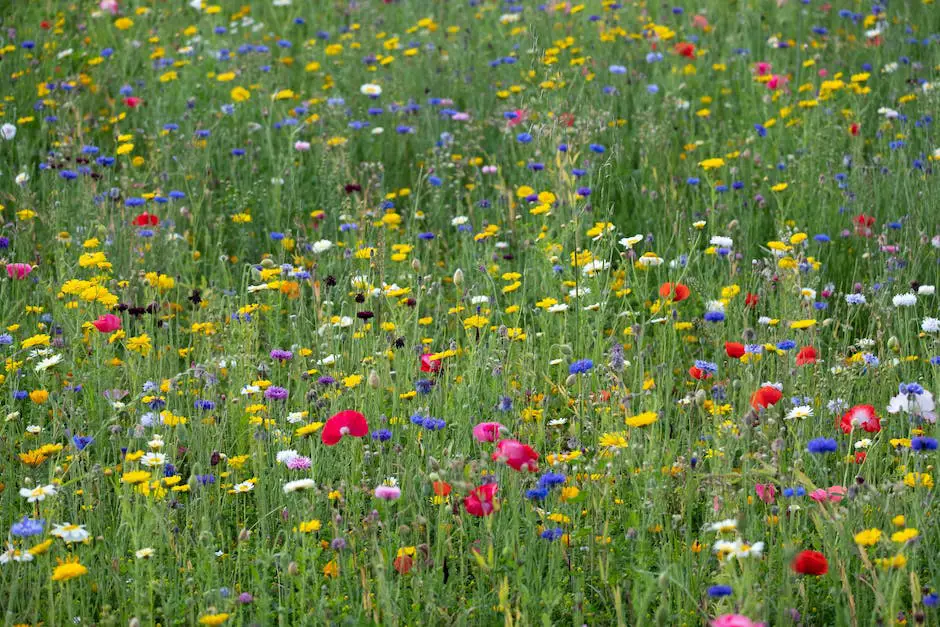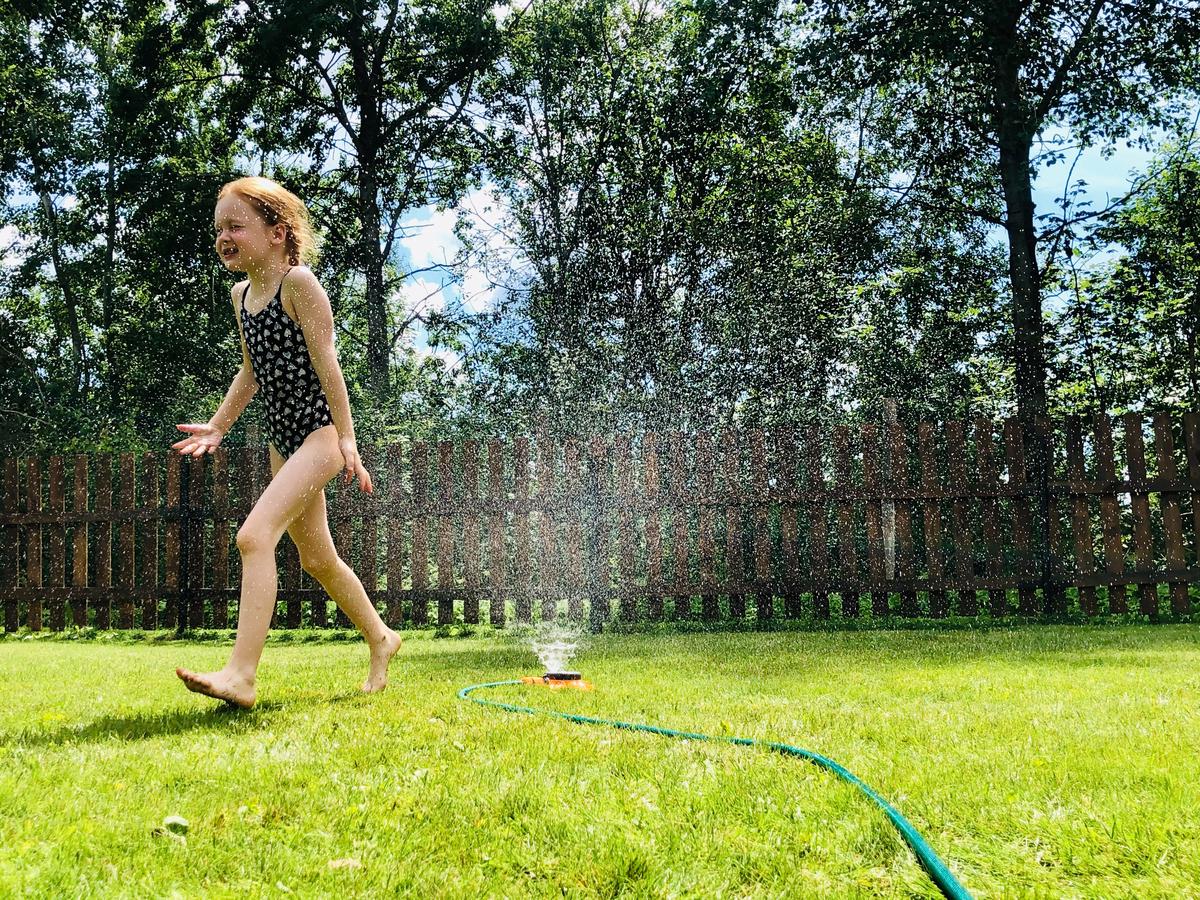Envisage a vibrant, lush lawn that is not only appealing to the eye but also free from harmful chemicals, contributing to a healthier environment for your family and pets. This ideal scenario is not out of reach, but rather a culmination of adopting organic lawn care practices.
When your lawn care efforts are in harmony with nature, you’re not just enhancing the aesthetics of your property but also playing a vital role in promoting an environmentally friendly lifestyle.
Dive into the multifaceted world of organic lawn care, understand its significance, discover practical steps to start, explore natural pest control techniques, learn about sustainable watering methods, and get armed with natural weed management tactics. Step into the endless possibilities of fostering a lawn that is both beautiful and safe.
Understand the Basics of Organic Lawn Care
Gardening and lawn care are indeed joys of being a homeowner, but did you know that the products used can directly impact a family’s wellness and safety? Organic lawn care provides not only a beautiful landscape but also boosts a healthier environment for everyone within the family realm, not to mention our beloved Mother Earth.
To start, let’s understand what organic lawn care encompasses. It means using natural and non-toxic methods and products to maintain your lawn. This approach involves techniques such as composting, lawn aeration, proper mowing methods, and natural pest control.
It focuses on nurturing the soil and promoting healthy grass growth over a prolonged period, rather than seeking instant gratification with potentially harmful chemicals.
The reason why families should consider organic lawn care may seem ambiguous, but here’s a low down.
- Safety First: Traditional lawn care products often contain chemicals potentially harmful to children and pets. Toddlers and youngsters love playground-like lawns, making it imperative to keep it safe. Organic lawn care ensures that when they’re exploring the great outdoors, they’re not coming into contact with harmful substances. The worry of toxic substances is non-existent with organic lawn care.
- Healthier Environment: Organic lawn care contributes to a healthier environment by reducing pollution. Traditional fertilizers often leach into the aquatic ecosystem, harming aquatic life indirectly. On the other hand, organic products break down slowly and feed the grass over time, leaving less room for runoff.
- Improved Soil Health: Healthy soil is the powerhouse for any plant’s vitality. Organic lawn care nurtures soil structure. It enriches the soil with nutrients, fostering helpful soil organisms that make nutrients available to your grass.
- Cost-efficient: While organic products may seem pricier upfront, consider it an investment towards the lawn’s long-term health. Organic lawn care enhances the preservation of the grass, reducing the need for frequent watering and reseeding, thus saving money in the long run.
- Appeal to Nature: Organic lawn care products are mostly composed of plants, animals, and mineral materials. There are no synthetic components, making them sustainable and kinder to our planet. By opting for organic lawn care, families automatically contribute to the preservation of nature.
There you have it – compelling reasons why organic lawn care is a superior choice for families. While the transition from traditional to organic might seem daunting at first, it is possible. Start with small changes, such as switching your fertilizer or trying out natural pest control. With time, patience, and perseverance, maintaining an organic lawn can prove to be a satisfying and healthful endeavor. After all, the grass could always be greener (and healthier) on your side of the fence!

How to Start Organic Lawn Care: Essential Steps
Feeling the need to shift gears and embrace an organic approach towards a greener lawn? Great! You’re about to embark on a journey towards safer outdoor spaces for your family and a healthier environment.
While the benefits of organic lawn care are indispensable – from safeguarding your children and pets, reducing pollution, and boosting soil health, to cost-saving in the long run, and valuing the call for sustainable practices – the task ahead may seem daunting. Fear not; here are some initial steps to help ease the transition.
Test Your Soil
The first step should be to understand your soil. This means getting a soil test kit from your local extension service or garden store. A soil test will provide data on pH level which affects nutrient availability, organic matter content, general fertility of the soil, and even the presence of any toxic materials.
It’s like a health check-up for your soil, and it’s key in determining the correct organic amendments needed for your lawn.
Choose Organic Fertilizers
Synthetic fertilizers may promise a quick fix, but they can harm your lawn’s long-term health and add harmful chemicals into your environment. Organic fertilizers, on the other hand, feed your lawn with natural nutrients, taking care of your grass and the soil. The key is to read labels and research the best types of organic fertilizers for your specific lawn conditions.
Manage Pests Naturally
Pest management is another area where you’ll need to rethink your approach. Instead of relying on chemical pesticides, consider employing beneficial insects, or using natural, organic pest repellents. Plant diversity can help to keep harmful insects in check, and simple, organic solutions like Neem oil or insecticidal soaps can protect your lawn without endangering your family or polluting the environment.
Watering Wisely
One of the pillars of organic lawn care is being smart about your watering methods. Over-watering encourages shallow root growth, making your lawn less resilient. Use a rain gauge to monitor just how much water your lawn is getting, and ensure it soaks into the soil to encourage deeper root systems.
Choose the Right Grass
Not all grass is the same. Some are more suited to specific climates and can thrive with lesser care. It’s highly recommended to choose local varieties or those which are adapted to your local climate. Generally, these will require less watering, less mowing, and less overall care — making them perfect for your organic lawn.
Consistent Mowing and Aerating
Regular mowing with the mower set to a higher setting may support a healthier lawn, as longer grass-blades shade the soil and minimize evaporation. Aeration, on the other hand, ensures your soil isn’t overly compacted, allowing it to breathe and absorb water and nutrients more readily.
Organic lawn care is more than a practice; it’s a pledge towards a greener future. Switching to organic methods is the first step towards recognizing and acknowledging this important commitment. It’s never too late to start, friends, so let’s get onto building lawns that are vibrant and green in every sense of the word – for the planet, our families, and our future.

Natural Pest Control in Organic Lawn Care
Whether you are working on maintaining the stunning looks of your lawn or keeping each grass’s healthy green color, one challenge always seems to come up: pests.
Undesired bugs and animals can make gardening a less delightful endeavor. And when you switch to organic care, the matter becomes trickier, as synthetic pesticides are off the table. So, here are some natural ways to bid these pests goodbye while maintaining a green, healthy, organic lawn.
To begin with, beneficial insects are a great organic remedy to get rid of unwanted pests. Just as not all bugs are harmful to your lawn, there are nature’s own pest managers like ladybugs, spiders, and praying mantises that safeguard your garden’s health by devouring detrimental bugs.
Planting certain types of flowers and herbs, such as marigolds, yarrow, or fennel, can attract these helpful critters. Plant them around the perimeters of your lawn to create a biological barrier against pests.
Garlic and chili sprays also make an effective homemade bug deterrent. These sprays, made from minced garlic or chili peppers soaked in water, can repel pests without harming your lawn or threatening your family’s health. Just remember to use them sparingly, as the strong smell could also repel those useful insects we mentioned earlier.
Another useful technique is to use organic mulch, such as compost or straw. Mulch is a gardener’s best friend: It retains moisture, stabilizes soil temperature, and enriches the soil as it decomposes. In addition, it helps deter pests by blocking their access to your plants and disrupting their life cycle.
Crop rotation is not exclusive to large-scale farming. This method involves alternating different types of plants in the same area over the seasons. Because many pests are plant-specific, swapping out the plants they feed on every few months can help keep their populations in check.
If you have a larger lawn where you grow different species of plants, this could significantly help reduce pest numbers in an all-natural way.
Last but not least, remember to keep your lawn healthy. A well-fed lawn is naturally more resistant to pests. In harmony with nature, ensure that your soil is rich in nutrients, well-aerated, and drains properly. Also, mow regularly and at the appropriate height for your type of grass.
While the shift to an organic lawn may seem daunting at first, a little patience, persistence, and knowledge will eventually pay off. Rest assured when your children and pets play outdoors, they’re safe from harmful chemicals, and your lawn boasts its natural beauty. The best part? You’re doing your bit to keep the environment healthy. Now that truly is a yard worth enjoying.

Sustainable Watering Practices for Organic Lawns
Let’s dive into the art of conscious watering, a crucial practice in maintaining a lush, green lawn whilst maintaining an organic approach.
Conscious watering isn’t just about turning on the tap and moving your sprinkler around the yard. It’s a thoughtful process that requires understanding when, how much, and how frequently your lawn needs water. It’s a key part of organic lawn care, often overlooked or understated but vitally important in maintaining a healthy and beautiful lawn naturally.
Watering at the right time of day is essential. Early morning or late evening, when the sun isn’t too strong, allows water to reach the plant roots instead of evaporating. Take advantage of nature’s natural watering system—rain.
Rainwater is the best source for our lawns because it’s typically soft, and plants readily absorb it. Incorporating rainwater harvesting techniques like rain barrels can result in lower utility bills while providing a perfect solution for conscious watering.
The amount of water your lawn needs depends on the type of grass, the climate, and the soil’s health. Typically, deeper, less frequent watering encourages strong roots and deters pests. Overwatering not only wastes water but also encourages shallow root growth and fosters a suitable environment for plant diseases and pests.
Watering techniques also play into the act of conscious watering. Drip irrigation or soaker hoses can provide a slow, steady watering that’s effective and conserves water. The spray from sprinklers can often evaporate before it hits the ground, especially on hot or windy days. Therefore, more directed methods of watering can be beneficial.
Remember, conscious watering is about more than just conserving water. It’s a pillar of organic lawn care that contributes to the broader picture of sustainable living. As much as a lush green lawn can elevate the aesthetic value of your home, knowing it is maintained organically brings a sense of satisfaction.
Providing a safe environment for your children and pets to play and contribute beneficially to the broader environment shouldn’t be undermined by the use of chemicals and inconsiderate water usage.
Education and awareness about conscious watering contribute greatly to this goal of sustainable, organic lawn care. Share your green thumb knowledge with neighbors and friends. Start a trend towards more eco-conscious lawn care in your community and enjoy the ripple effect of your positive actions.
Caring for our lawns organically is a simple way we can make a significant difference in our little corner of the world. Each lush, green, organic lawn is a sign of a family committed to taking care of the environment, creating a safer space for their family, and conserving resources for future generations.
With conscious watering, you’re not just nurturing your lawn, but you’re also developing a healthier home environment and a more sustainable world. What a breath of fresh, clean air that is!
Managing Lawn Weeds Organically
When maintaining an organic lawn, controlling weeds can sometimes appear as a daunting task. Times have changed, and cause for alarm shouldn’t arise when your lawn is faced with pesky, unwanted weeds. Organic solutions for weed control are readily available, and what’s even better, these solutions are both friendly to your pocket and the environment.
One of the simplest yet most effective methods is hand weeding. Yes, it’s time to put on those gardening gloves! Hand weeding not only lets you get up close to nature but also properly removes the roots, ensuring the weed won’t make an unwelcome comeback. Remember, consistency is key here.
For those hard-to-reach areas, a hoe becomes your best friend. The trick with this method is to catch the weeds when they are young and shallow-rooted. This minimizes labor and makes the process infinitely easier.
Next up, making weed-choking mulch your go-to. Slow decomposing materials like wood chips, straw, or sawdust make for great mulch. This organic remedy not only suppresses weeds but also helps add nutrients to the soil over time. It’s a win-win!
Corn gluten meal, a by-product of commercial corn milling, can also be effectively used as a pre-emergent weed control. Apply in early spring or late summer to stop weed seeds from germinating. Not to mention, it’s another fantastic source of nitrogen for your soil!
Solarizing your soil is another beneficial step towards weed control. This process involves using a clear, plastic tarp placed directly on moist soil during the warm summer months. The resultant heat effectively kills weed seeds and soil-borne pathogens, giving your lawn the protection it deserves.
A compelling DIY method involves creating your own weed spray using the likes of vinegar or boiling water. Vinegar rapidly decreases the pH of the soil making conditions inhospitable for the weed. The boiling water method is just as it sounds, scalding hot water absorbs quickly into the weed, killing it outright. Please remember, that both treatments are non-selective and should be used carefully to avoid damage to nearby plants or grass you wish to keep!
Consider planting ground cover plants, if your lawn can manage it. These unique beauties require less water, help quell erosion, and, most importantly, leave little room for weeds to sprout by blocking sunlight which the weed seeds require to germinate.
Lastly, maintaining a thick, healthy lawn is one of the best defenses against weed invasion. Regularly overseeding can be a game-changer. This gives your grass a leg up and the density of the turf makes it harder for the weed to penetrate.
There you have it, a range of organic solutions to arm yourselves with in your fight against those pesky weeds. Following these strategies will undoubtedly aid in fostering a vibrant, green and healthy lawn, one that is loved by family, friends, and most importantly, Mother Earth. Live green, live organic. Let’s work together to foster a more natural, chemical-free environment in our backyards. After all, a little effort today can lead to greener pastures tomorrow!
Transforming the green canvas of your home through organic lawn care is a rewarding process that requires dedication, knowledge, and patience. As you journey through organic lawn practices, you are not only creating a visual treat but also fostering a safe space for your loved ones and the environment.
Embrace the steps laid out, from understanding soil composition to efficient water practices, from natural pest control methods to organic weed management. With each careful measure, you align yourself more closely with nature and contribute to a larger cycle of sustainability.
Welcome to the world of responsible, effective, and satisfying lawn care, where each green blade is a testament to your commitment.

